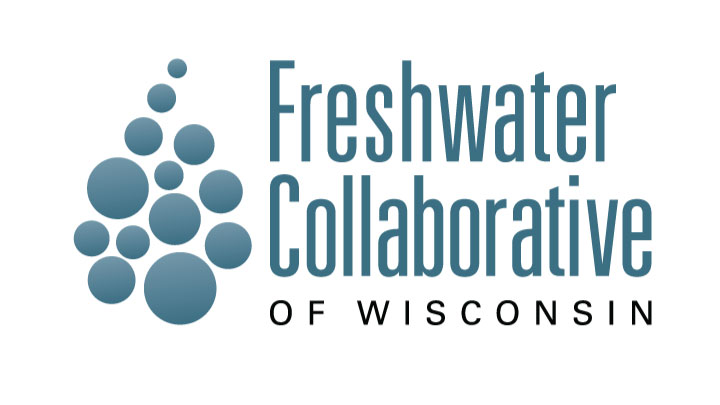UW-Parkside Receives Funding from Freshwater Collaborative of Wisconsin to Train Next Generation of Water Scientists

SOMERS, Wis., March. 29, 2022—The University of Wisconsin-Parkside will receive more than $40,000 from the Freshwater Collaborative of Wisconsin (FCW) to enhance its water-related academic programs.
Funding at UW-Parkside includes support for the following projects
- Freshwater Camp (Freshwater Career Related University-Introduction Summer Experience) – Student Experience for High School Juniors
- The Root Magazine – WATER issue
- Human Interactions with Lake Michigan Coastal Ecosystems – Field-Study Course
- Principles of Freshwater Informatics – Laboratory and Field-Study Course
FCW funding is part of a statewide initiative, backed by the Wisconsin State Legislature and Gov. Tony Evers, to tackle 10 grand water challenges and support curriculum development, undergraduate research opportunities, career development, and field-training experiences for students interested in studying water-related subjects at the 13 UW schools.
“Water is a such a relevant topic across academic disciplines,” said Dr. Lesley Walker, dean of the College of Arts and Humanities at UW-Parkside. “For example, UW-Parkside students who produce The Root magazine may not typically be taking advanced courses in biology or environmental science. Working on the stories, they become more aware of water-related issues and might pursue additional education in these fields. At the same time, the magazine draws in a more diverse community of readers.”
The Freshwater Camp
The Freshwater Career Related University-Introduction Summer Experience is designed to enrich students’ understanding of the natural sciences and local environmental issues.
“Connecting high school students to the Great Lakes and local waterways is particularly important,” said Dr. Jessica Orlofske, associate professor of biological sciences at UW-Parkside. “With partners at UW-Whitewater, the Freshwater Camp will help students become familiar with careers in freshwater, develop scientific skills, and learn about real-world issues with local impact.”
Human Interactions with Lake Michigan Coastal Ecosystems
A nine-day field study explores the land-sea interface with a focus on urban vs. rural changes. Students will engage with local practitioners and community partners to become more familiar with local Great Lakes water-resource management along the western shoreline of Lake Michigan.
Principles of Freshwater Informatics
This is the century of big data, and the water sector is no exception. “Technological innovations have made it easier than ever to collect massive amounts of data,” said Dr. Orlofske. “The next generation of freshwater professionals needs to be prepared to make the most of these data. The freshwater informatics course will help address this urgent need.”
According to Dr. Christopher Tyrrell, curator of botany at the Milwaukee Public Museum, the Freshwater Collaborative made this course possible by encouraging new partnerships like the one formed between UW-Parkside biological sciences faculty and the Milwaukee Public Museum research staff. “This funding provides an opportunity for UW-Parkside and the Milwaukee Public Museum to develop and deliver a course aimed at teaching students how to use and handle ‘big data’ as it relates to freshwater,” Tyrrell said.
This course prepares students for the big-data work environment with the background and skills they need to develop and effectively manage a wide range of data sources.
Throughout the UW System, the Freshwater Collaborative of Wisconsin will support 42 grants to further develop water science programs, internships, and research opportunities. High school and undergraduate students will have opportunities to participate in hands-on field and research experiences with faculty throughout the state, allowing them to develop a diverse range of skills. The Collaborative is also partnering with industry, nonprofits, and community organizations to increase career development opportunities for students. Grant descriptions are available at freshwater.wisconsin.edu.
“Water is one of the fastest growing sectors of our economy,” said Marissa Jablonski, executive director of the Freshwater Collaborative of Wisconsin. “With these funds, the 13 UW universities can expand training opportunities for students and prepare them to meet the needs of Wisconsin’s workforce and address our state’s biggest water challenges.”
Wisconsin has abundant water resources; however, factors such as invasive species, pollution and climate change could significantly impact water safety and economic growth. The State of Wisconsin and the Freshwater Collaborative have identified 10 grand water challenges facing the state and are currently focusing research efforts on the top two: Agricultural Water Management and Water Quality Safety/Emerging Contaminants.
Startup funding for the Freshwater Collaborative was provided in 2019 by the Wisconsin Economic Development Corporation and the UW System. In July 2021, the Wisconsin State Legislature and Gov. Evers approved $5 million in the current biennial budget to expand the Collaboration’s ability to train water professionals and establish Wisconsin as a leader in water-related science and economic growth.
About UW-Parkside
The University of Wisconsin-Parkside is committed to high-quality educational programs, creative and scholarly activities, and services responsive to its diverse student population, and its local, national, and global communities. We are a dynamic learning community grounded in academic excellence and focused on student success, diversity, inclusion, and community engagement. The campus serves as a premier comprehensive public institution and a destination of choice, serving as a focal point of local, regional, and global progress.
About the Freshwater Collaborative
The Freshwater Collaborative of Wisconsin is a partnership of Wisconsin’s 13 public universities, connecting with industry partners, local communities, policymakers, and advocacy groups. Its mission is to establish Wisconsin as a world leader in freshwater science, technology, entrepreneurship, and economic growth. The Freshwater Collaborative of Wisconsin is training the next generation of scientists to solve global water resource problems through academic programs, collaborative research, and career development across the UW System. Learn more at freshwater.wisconsin.edu.
Media Contact:
Tannette Elie
Executive Director of University Relations
University of Wisconsin-Parkside
elie@uwp.edu